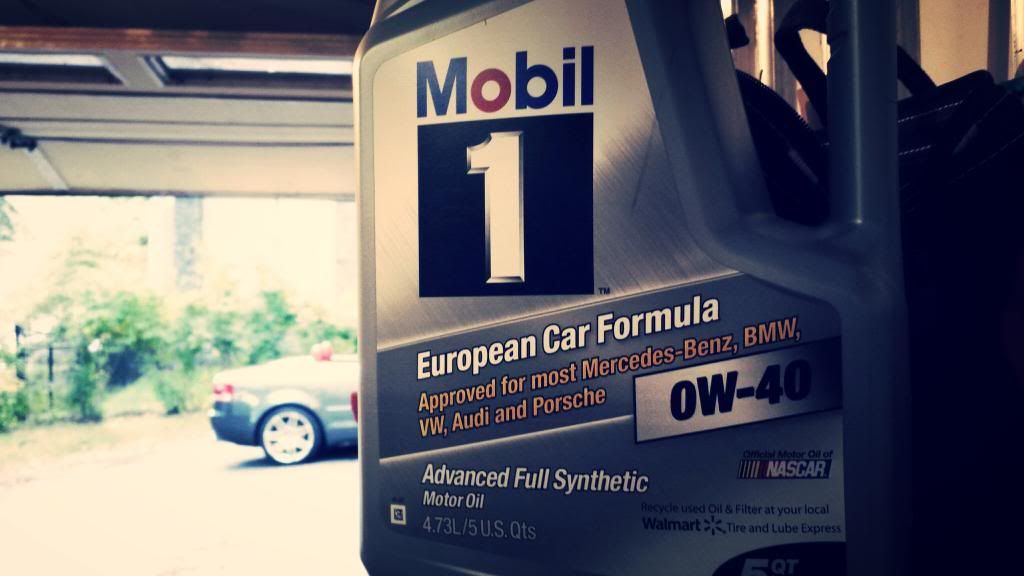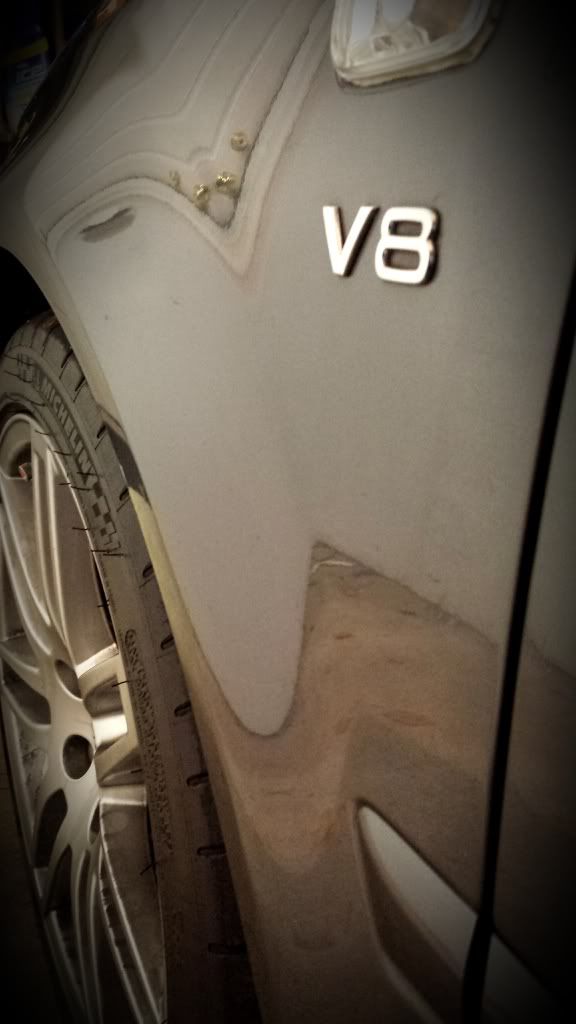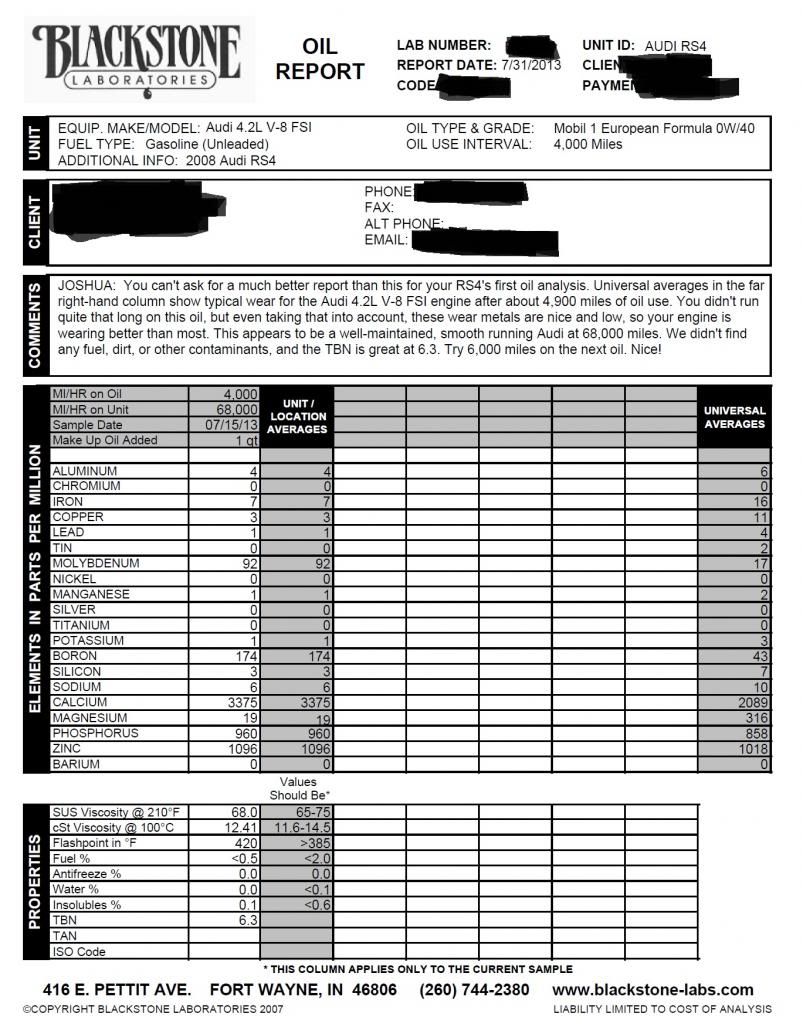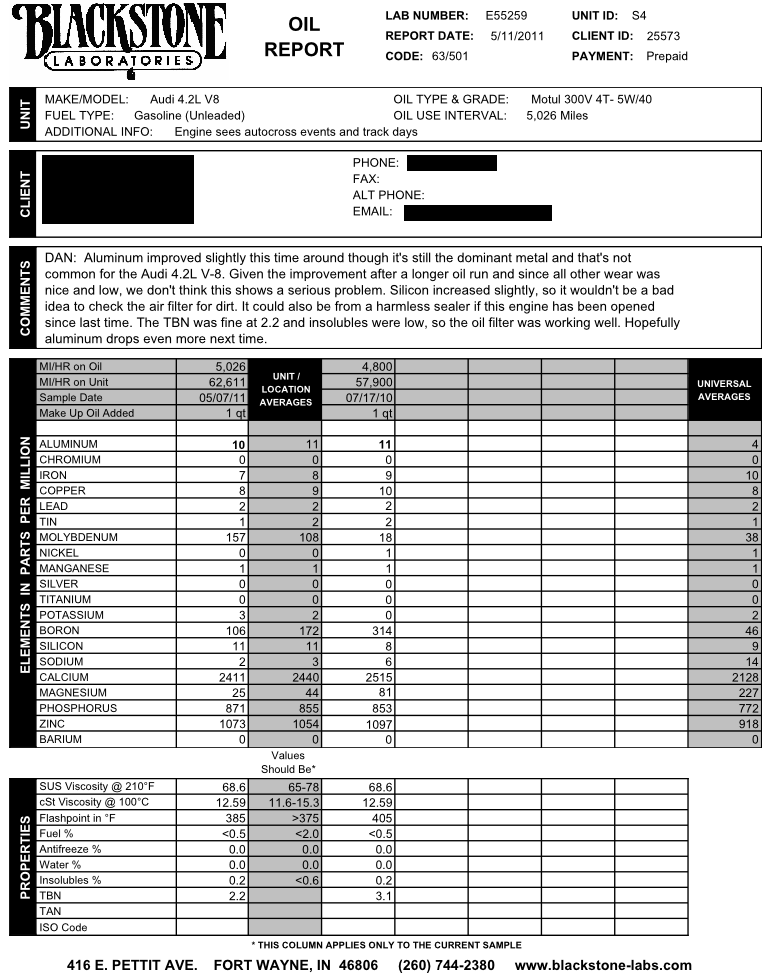
Originally Posted by
Fritz_S4

Hey dparm, I spent the day reading up on motor oil cause it seems it's fairly important to our engines. now from the link you reccommended it seems that "Bob" is recommending running the thinnest oil possible in our motors because thinner oil requires less pressure to be pushed through the engine and therefore equates to more flow for cooling and lubrication.
That being said is there a reason everyone on here reccomends running a 0W-40 grade instead of a lighter 0W-30 Grade oil? From what I understand the 0W-30 should be a better fit since it would be better suited to lubricate the engine and keep temps down while being easier on the pump and at the same time be less thick at start up making less engine wear and ultimately prolonging the life of our babies?
Is it solely because of the oil consumption issues? Because if that's the case I prefer topping off my oil more often rather than wearing out my engine faster.
Would you be able to enlighten me on this subject? and if this has been discussed I apologise for not searching appropriately and a simple link to the relevant discussion will suffice for an answer.
It's a fair question. To be honest, the SAE viscosity grades don't tell the real story about operational viscosity. A given viscosity grade, such as 0w40, allows for a range of viscosities when cold, and another range of viscosities when warm. And even then, it's only at two levels that the oil doesn't spend much time at: 40 C and 100 C. The oil in the sump is probably averaging 100 C, but in the most important parts of the motor (valvetrain, bearings, etc) it's well above that. It's why I recommend you judge an oil's viscosity by its HTHS value. You can think of HTHS as "viscosity at 150 C", a more accurate indicator of operational viscosity since oil will hit 300 F and higher in the motor's hot-spots.
That being said, you do want an oil that's as thin as possible but as thick as necessary. When you look at the VW 502/505 approval list, the vast majority of those oils have HTHS of 3.6-3.8. It's why I am not a big fan of an oil with HTHS >4.0 in this motor: it steals horsepower & MPG, the oil runs hotter, oil pressure is elevated, and it makes the oil pump work harder than it needs to.
M1 0w40 is really as thick as you probably need in the S4, even if you drive it hard (HTHS is 3.8). There aren't many 0w30s that carry the VW 502/505 approval. Most 0w30s are "thin 30s" with HTHS around 3.0-3.2, which is below the minimum 3.5 threshold that Audi wants. Most of those thin-30s are designed to be resource-conserving oils, meaning they're intentionally thin to improve gas mileage. The only 0w30s I would run would be Renewable Lube BioSyn (HTHS 3.8), Castrol Edge (HTHS 3.6), and Motul X-Lite (HTHS 3.6). Of those, the Renewable Lube is an outstanding oil with a high viscosity index that's made right here in america from bio-esters.
So yes, M1 0w40 and Renewable Lube 0w30 both have HTHS of 3.8...meaning that although M1 appears thicker on paper, it is the same viscosity in operation as the RLI 0w30.
Why does Audi want something so thick? Hard to say with any certainty, but it's probably some combination of these. For the record, BMW, Mercedes, VW, and Porsche adhere to very similar requirements:
1. thicker oils are consumed or leak more slowly (supports the longer change interval)
2. going too thin might compromise protection for sustained high-speed driving, such as on the autobahn
3. most Xw40 oils are performance-oriented and have additive packs designed for maximum high-temp protection
4. "better safe than sorry" attitude from long ago when motors were oil cooled















 Reply With Quote
Reply With Quote












Bookmarks